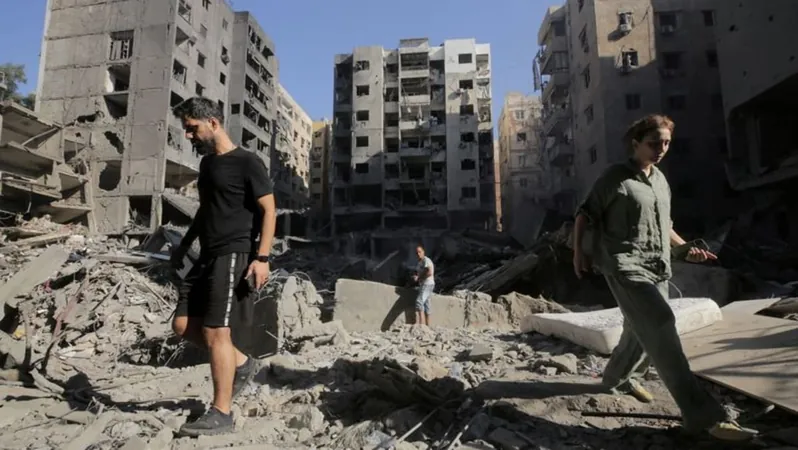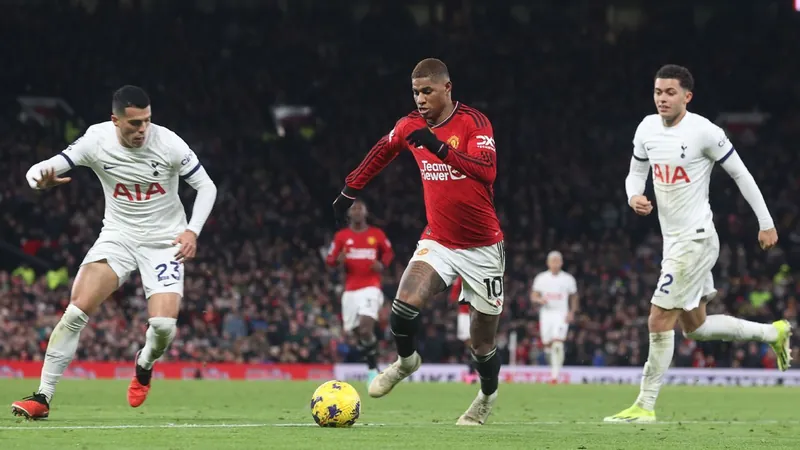
Hezbollah Promises Relentless Resistance Against Israel Following Nasrallah's Assassination
2024-09-30
Hezbollah's Commitment to Resistance
In a dramatic response to the recent killing of its leader Hassan Nasrallah, Hezbollah firmly declared its commitment to continue resisting Israeli forces. The group's deputy chief, Naim Qassem, announced on September 30 that a successor to Nasrallah would be appointed "at the earliest opportunity" after the devastating air strike that significantly weakened the organization.
Prepared for Confrontation
During a televised address, Qassem emphasized Hezbollah's readiness to confront any potential Israeli ground operations in Lebanon, despite sustained bombardments that have already resulted in the deaths of many senior commanders and officials over the past week.
Escalation of Hostilities
In a marked escalation of hostilities, Hezbollah initiated low-intensity attacks against Israeli troops just one day after the unprecedented assault by its ally Hamas on Israel on October 7, which precipitated a wider conflict in Gaza. Israel has since adjusted its military strategy, shifting focus from Gaza to securing its northern border with Lebanon, prompting fears of a major military incursion.
Hezbollah's Resolve
Qassem stated, "We will stand firm against the Israeli enemy, supporting Gaza and Palestine, defending Lebanon and its people, and retaliating against the assassination campaign and the killing of innocent civilians." He cautioned that any conflict with Israel would be prolonged, affirming that Hezbollah is prepared for any land engagement if Israel chooses to invade.
Israeli Response
Despite Hezbollah's firm statements, Israeli officials, including Defence Minister Yoav Gallant, underscored that while Nasrallah's elimination was significant, it represents only a fragment of their broader operation. Gallant asserted, "We will utilize all our means to ensure the safety of Israel's northern communities."
Consequences in Lebanon
The escalation has led to devastating consequences in Lebanon, with Israeli strikes primarily targeting Hezbollah strongholds in the eastern and southern regions, as well as the southern suburbs of Beirut. In a drone strike on a building in the Cola district of central Beirut, three members of an armed Palestinian group lost their lives, igniting panic among residents. Mohammed al-Hoss, a local resident, described the shock felt by families, noting, "Our country is in a wretched state. They finished with Gaza and now they have come to Lebanon."
Casualties and Humanitarian Crisis
The government's health ministry reported casualties from the strikes, with reports indicating the deaths of at least four individuals and injuries to many others. Palestinian militant group Hamas also confirmed the death of its leader in Lebanon, Fatah Sharif Abu al-Amine, along with his family in a targeted strike on a refugee camp.
UN Reports on Displacement
As the situation escalates, UN reports indicate a staggering humanitarian crisis, with over 200,000 people internally displaced in Lebanon, and estimates suggest that up to one million individuals may be uprooted due to the ongoing violence.
Broader Regional Dynamics
The conflict has also spilled over into wider regional dynamics. On the same day, the Israeli military intercepted what it described as a suspicious aerial target from Lebanon and conducted strikes against Iranian-backed Houthi rebels in Yemen, reportedly resulting in several fatalities. This follows the Houthis' announcement that they had attempted to target Israel's Ben Gurion airport with missiles.
International Concern
Internationally, world leaders are expressing heightened concerns over the conflict. French Foreign Minister Jean-Noel Barrot visited Beirut, urging an immediate halt to the violence, while U.S. President Joe Biden emphasized the importance of avoiding a broader war.
Conclusion
The geopolitical landscape remains precarious in the wake of these developments, with the threats of broader regional conflict looming large. As tensions rise, both Hezbollah and Israel are preparing for an uncertain and possibly violent escalation in hostilities.




 Brasil (PT)
Brasil (PT)
 Canada (EN)
Canada (EN)
 Chile (ES)
Chile (ES)
 España (ES)
España (ES)
 France (FR)
France (FR)
 Hong Kong (EN)
Hong Kong (EN)
 Italia (IT)
Italia (IT)
 日本 (JA)
日本 (JA)
 Magyarország (HU)
Magyarország (HU)
 Norge (NO)
Norge (NO)
 Polska (PL)
Polska (PL)
 Schweiz (DE)
Schweiz (DE)
 Singapore (EN)
Singapore (EN)
 Sverige (SV)
Sverige (SV)
 Suomi (FI)
Suomi (FI)
 Türkiye (TR)
Türkiye (TR)